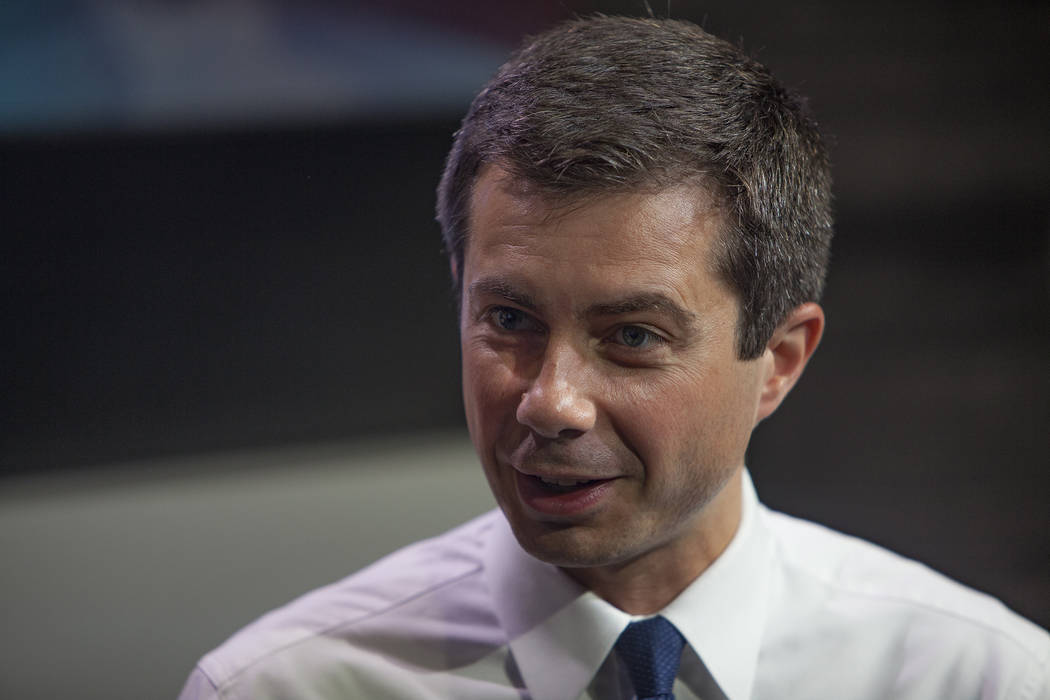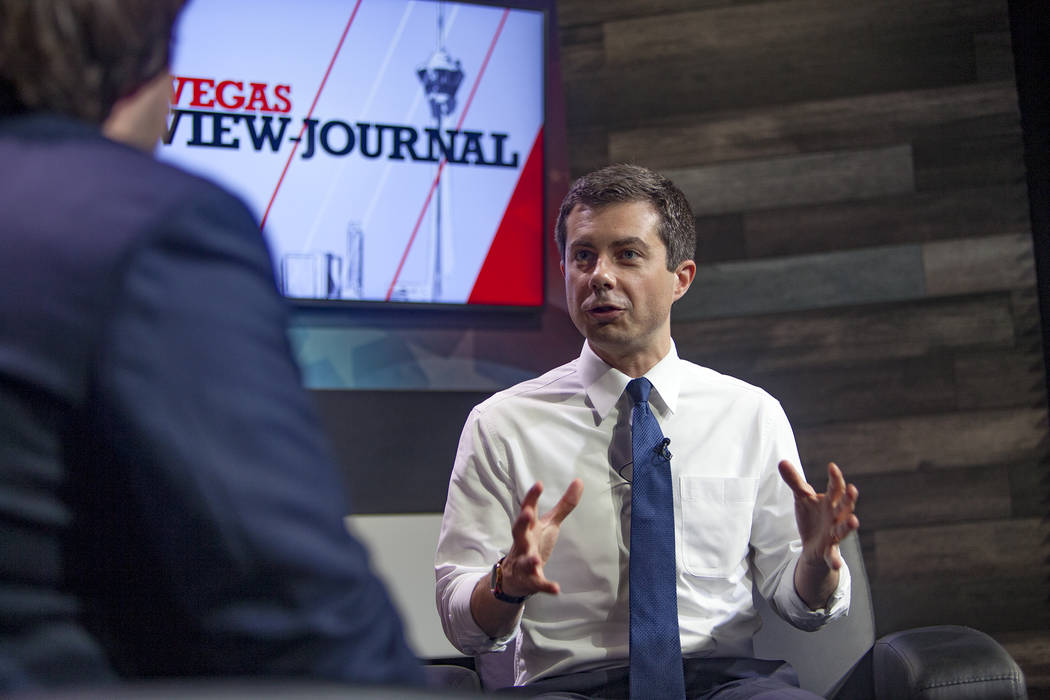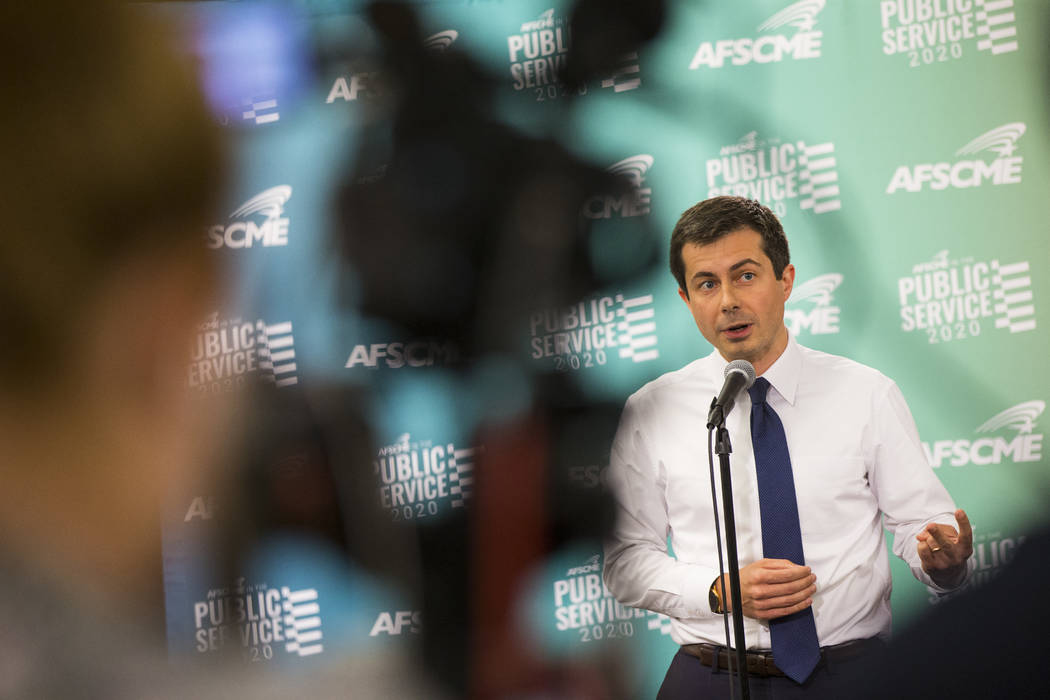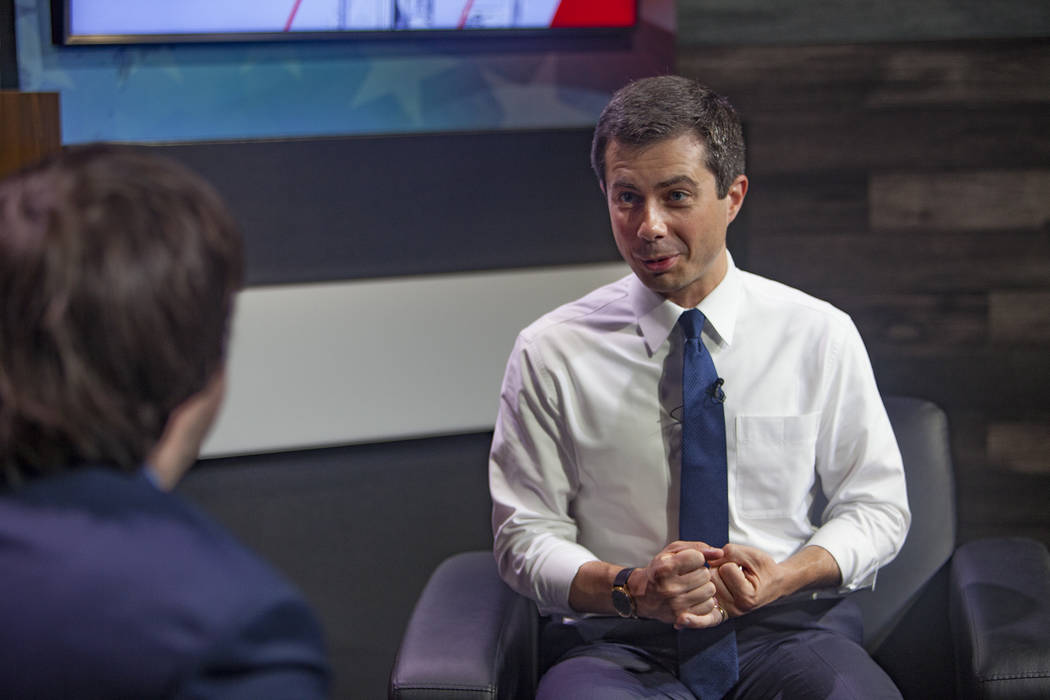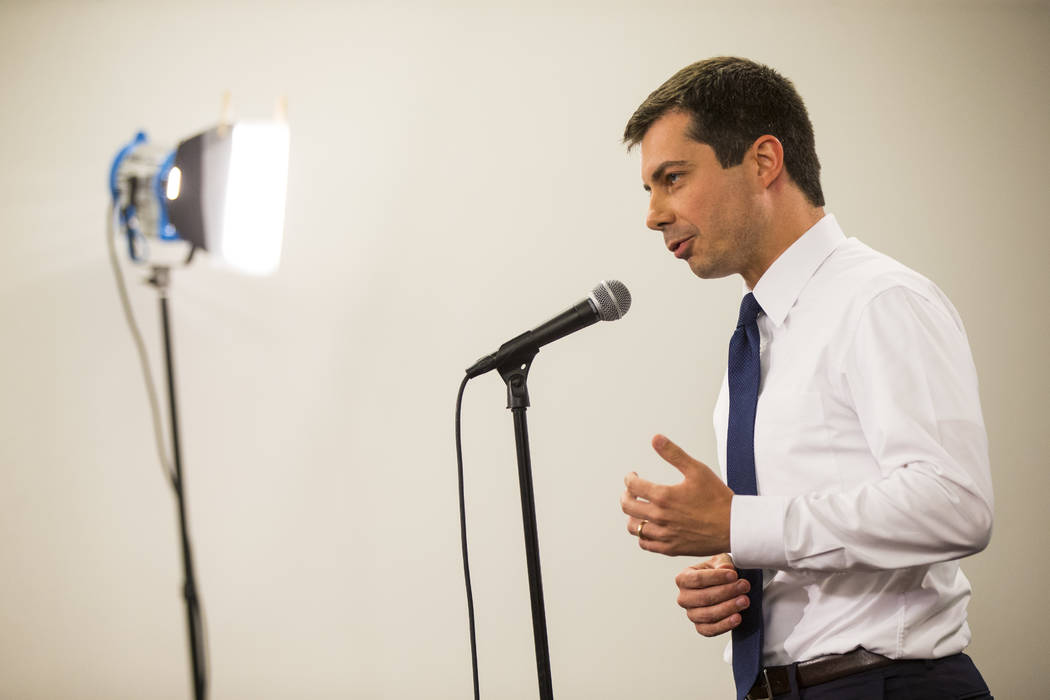Pete Buttigieg says Nevada’s diversity, economy serve as map for country
Democratic presidential hopeful Pete Buttigieg returned this week to Las Vegas, where he shared his unique mix of youthful idealism tempered with moderate policy plans in an interview with the Review-Journal.
The South Bend, Indiana, mayor pledged to beef up Nevada staffing operations and visit the early caucus state more frequently in the future, saying that he has now gained the name recognition and campaign funds necessary to make a harder push in the Silver State.
“Nevada is going to be absolutely crucial in the pathway to the nomination,” Buttigieg said. “I think it’s part of how I will become the nominee.”
Buttigieg said the diversity and “future-oriented nature” of Las Vegas in areas like solar power show the direction the country and its economy are traveling, and scoring well here would be a strong indicator of whether his national message is resonating.
He touted his Douglass Plan, named after abolitionist Frederick Douglass, as a way to provide increased health care, education and economic opportunities to diverse communities and specifically African-Americans. He said President Donald Trump uses immigration policy to divide the country, when it should be used to make families whole and for the country’s economic benefit.
Looking at inequality
But Buttigieg isn’t the only one shopping far-reaching plans for racial equality in Nevada.
Sen. Cory Booker, an African-American, has his own set of plans for lifting black and brown neighborhoods, as does former Housing and Urban Development Secretary Julian Castro, the only Latino in the race. Sen. Kamala Harris, an African-American woman and the daughter of immigrants, is proposing a $100 billion investment just to close the racial gap in home ownership.
Each of these candidates has made a case to Nevadans while visiting the state more frequently than Buttigieg. So why should voters rally behind a white man’s plan instead?
“It is the most comprehensive plan to deal with systemic racism in this country that’s been put forward in (any) campaign,” Buttigieg said of the Douglass Plan.
He said his plan looks specifically at how racial inequality is interconnected with various parts of American life. It would cut jail populations by half without increasing crime, for example, as well as expunge criminal records as the country works to legalize marijuana.
“But we’re not reducing the black experience to the experience with criminal justice,” Buttigieg said. “I want to be talking and acting on solutions that are coming from communities of color. That’s where the entrepreneurship work is so important.”
That work would include a goal that 25 percent of all federal contracting go to minority-owned businesses, as well as reforming the credit scoring process to allow minority-owned businesses greater access to investment capital.
“This is not a specialty issue,” Buttigieg said. “This is a conversation that frankly a lot of white Americans need to have too. Because everybody is worse off living in a country that is divided by race.”
Health care transition
Buttigieg, a U.S. Navy veteran who served in Afghanistan, is the mayor of a town that has struggled with gun violence,. He favors a fairly moderate gun control plan: Universal background checks, disarming domestic abusers and an assault weapon ban.
Asked if the next president would need to go further than those measures, Buttigieg said the first step should be breaking the Washington gridlock on these three policy proposals. They are widely supported by the American people, inexpensive and would save thousands of lives each year, he said. The country could then consider further action.
Buttigieg also favors more moderate approaches to health care and college education than Sen. Bernie Sanders or Sen. Elizabeth Warren.
“What I believe is that any time a politician uses a phrase like ‘Medicare for All,’ they have a responsibility to explain what it would actually take to get there,” Buttigieg said.
He favors a transition into a Medicare for All system, in which individuals can choose to purchase Medicare or something like it on health care exchanges. He believes people will naturally gravitate to the “more cost-effective, more attractive and more efficient” public option, which will grow large enough to make the transition more palatable for those on private insurance or those working who may lose their jobs.
“The idea that we can just throw that switch and everything would work well — I don’t think that’s the answer for this country,” Buttigieg said.
Although the 37-year-old is one of the few candidates to have attended college in this millennium and has, with his husband, amassed more than $100,000 in student loan debt, Buttigieg said the math simply isn’t there for free, universal college education and debt forgiveness. Costs and debts for low-and-middle-income students should be reduced, but wea
lthy families can and should pay their own way.
Buttigieg said his sense of urgency comes from a personal sense of belonging to the generation that has the most to lose if the country fails to act or gain if these issues are addressed.
“You get a lot of credit in politics for just describing the problem in the best language possible,” Buttigieg said. “I’m interested in solving the problem in whatever way works.”
Contact Rory Appleton at rappleton@reviewjournal.com or 702-383-0276. Follow @RoryDoesPhonics on Twitter.



